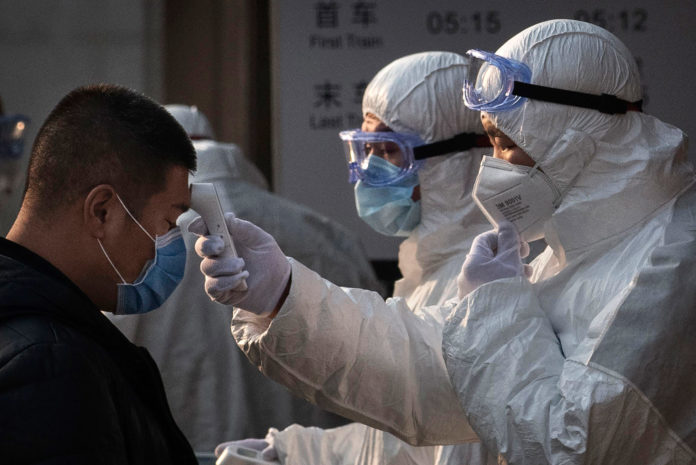The novel coronavirus is spreading all across the world and the number of cases is increasing daily at alarming rate As a precautionary measure, it has become a norm across the globe that masked professionals at airports, stores, offices, and even at the gates of residential societies aim handheld temperature guns (which look like a small pistol) at the person’s forehead to measure body temperature. It allows quick screening for feverishness and to thus prevent the spread of the deadly coronavirus. , These devices have become ubiquitous and synonymous with attempts of trying to contain the spread and outbreaks of the coronavirus.
What is a temperature gun?
The device known as ‘temperature gun’ or ‘infra gun’ is equipped with sensors and used to measure temperature from a distance without contacting the person’s skin. Also known as non-contact temperature measurement devices, the question is whether these devices can measure human body temperature accurately?
According to experts, thermometer gun readings are nearly instantaneous and gentle enough to detect the feverishness of a sleeping child. However, accuracy and reliability are a matter of concern. Infrared thermometers are characterized by specifications, including accuracy and angular coverage. Even a simple instrument may have a measurement error of about ±2 °C or ±4 °F. In addition, the accuracy of devices depends on how they are used, for example, how far the device is kept from the body it is measuring, and where exactly the device is pointed. It also matters how steadily and how long and it is held till the device registers a reading.
Considering the scenarios mentioned above, there is a considerable possibility that thermal screening can miss people who are infected with the novel coronavirus. On the other hand, it can falsely sound the alarm for those not infected. The CNA report says that fever was not the first symptom of some of the coronavirus patients. Readings may vary in cases if a person is sitting in cold or warm surrounding, or if a person already has a fever depressing medicine or other scenarios.
The New York Times reports that the thermometer guns used in screenings are “notorious, not active and reliable” since many screeners hold them at the wrong distance or use them in the wrong environments.
Does that mean that many coronavirus infected people pass undetected through this method of temperature screening? Why has the demand for temperature scanners and other such devices soared since the 2019-NCoV outbreak became widely publicized? A report from CNA indicates that even if these devices aren’t that accurate in measuring body temperature, they can be used as a complementary tool for initial screening, followed by other necessary procedures.
WHO also stated that temperature screening was useful during the current outbreak of the novel coronavirus 2019-nCoV, when several exported cases were detected through the entry screening implemented by some countries at their ports of entry. “Symptomatic cases may be detected through temperature screening at Point of Entry, for whom medical examination and laboratory tests will be conducted for confirmation. Temperature screening to detect potential suspect cases at Point of Entry may miss travelers incubating the disease or travelers concealing fever during travel and may require substantial investments.”
To account for this possibility and to avoid further community spread, many countries are advising citizens to mandatory self-quarantine for 14 days if they have traveled abroad.
Non-contact handheld temperature guns are available online with brand options like MyCure, Dr Trust, Fluke, Servo Enterpise, Medi-Surge, and many others and are mostly imported from China. However, apparently none are as yet manufactured in India








